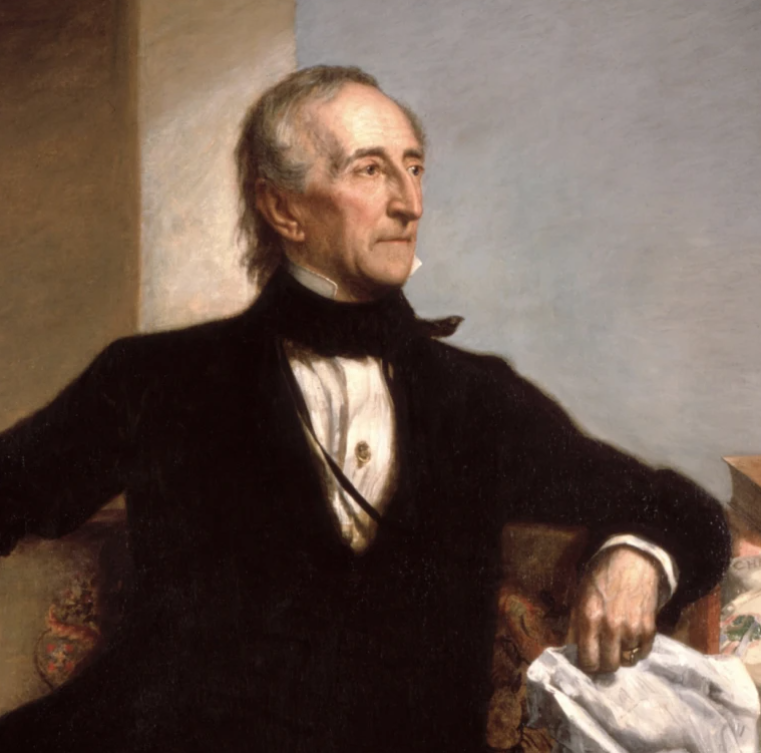President John Tyler served as the tenth president of the United States from 1841-1845. He was known for being the first vice president to assume the presidency after President William Henry Harrison died just a month after he took office.
Early Life
John Tyler was born in 1790 to a slave-owning family in Virginia. His father was a Speaker for the Virginia House of Delegates, and later became a state court judge. Tyler’s father also served as governor of Virginia and a judge on the U.S. District Court for the Eastern District of Virginia. Tyler attended the College of William and Mary and learned the law alongside his father. Tyler was admitted to the Virginia bar at age 19.
Political Life
John Tyler got his political start in the House of Delegates representing Charles City County. He quickly became well known for his strong support of states’ rights and opposition to a national bank.
In 1816, Tyler narrowly won a seat in the U.S. House of Representatives. He won reelection without opposition in 1819.
A major issue for Congress during Tyler’s second term was whether Missouri should be admitted to the Union, and whether slavery should be permitted or outlawed in the new state. Tyler believed the issue of slavery should be left to the states, and Congress did not have the power to regulate slavery. Though Missouri was admitted as a slave state, Tyler did not support its formation. Tyler voted against bills which would restrict slavery in the territories, believing that the decision should be left to the states.
Presidency
In 1839, the Whig party’s platform consisted of their opposition to the current President Van Buren. Harrison and Tyler won by 53% of the popular vote, and an electoral vote of 234-60. Tyler was a quiet vice president, spending his time residing at his home in Williamsburg, VA. President Harrison contracted pneumonia soon after being sworn in, and passed on April 5, 1841.
The passing of Harrison during his presidency was the first time the issue of succession had been raised. The Cabinet deliberated whether Tyler should assume the actual office of the president, or merely assume its powers and duties. Tyler argued that the Constitution gave him the full and unqualified powers of office and urged to be sworn in immediately as president. He took the presidential oath and set the precedent for an orderly transfer of power following the death of a president. Tyler’s presidency was met with resistance from both Cabinet members and opposition members of Congress. Many never fully accepted him as president, mocking Tyler by calling him “His Accidency.” Tyler only served one term. He died in January of 1862.
Notable events
President Tyler set precedent for presidential succession after the death of President William Henry Harrison. Additionally, Tyler was a major proponent of the annexation of Texas, which was formalized by treaty in February of 1844. Tyler signed the Texas statehood bill into law in March of 1845, just days before the end of his presidency.






